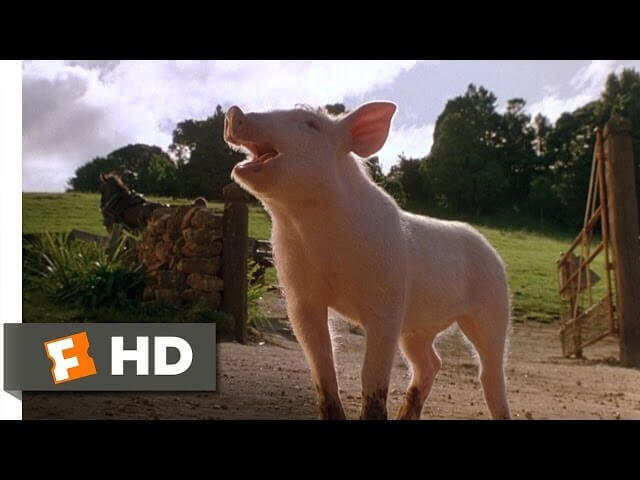From figgy pudding to candy to roast beast, Christmas means carnage

Even fictional people have to eat. Sometimes food reveals what we should know about a character, sometimes it’s a pleasant pause in the action, sometimes it’s a crucial staging platform for exposition, and sometimes, it’s one of the four food groups: candy, candy canes, candy corns, or syrup. Food Fiction is an ongoing feature that looks at some of the most memorable foods in the history of storytelling.
If you celebrate Christmas, it’s best to be either a kid or very rich. For everyone who’s neither of those things, Christmas is a whole lot of work: gift buying, gift wrapping, hall decking, budget tracking, logistics coordinating, chit-chatting with friends and family. And, of course, prepping and serving Christmas food, which creates the pressure to get an expensive, difficult, once-a-year treat just right.
Wouldn’t it be nice to have servants to do the prep, especially when it comes to pulling off that Christmas pudding? Like Upstairs, Downstairs before it, Downton Abbey makes it clear the lovely Christmases of the privileged are celebrated through the labors of the working class. But, for perhaps a century or so, if one was not privileged enough to employ talented cooks in England, one was still expected to produce a serviceable pudding.
“Mrs. Cratchit left the room alone—too nervous to bear witnesses—to take the pudding up and bring it in. Suppose it should not be done enough! Suppose it should break in turning out!… Hallo! A great deal of steam! The pudding was out of the copper. A smell like a washing-day! That was the cloth. A smell like an eating-house and a pastry cook’s next door to each other, with a laundress next door to that! That was the pudding! In half a minute Mrs. Cratchit entered—flushed, but smiling proudly—with the pudding, like a speckled cannon-ball, so hard and firm, blazing in half of half-a-quartern of ignited brandy, and bedight with Christmas holly stuck into the top. Oh, a wonderful pudding!… Mrs. Cratchit said that now the weight was off her mind, she would confess she had her doubts about the quantity of flour.”
In a story that manages to deliver almost every theme possible in a work of fiction, Charles Dickens finds time in A Christmas Carol to describe the basics of making a Christmas pudding in 1843, while vividly demonstrating the stress Mrs. Cratchit feels, as the responsibility is hers and hers alone to deliver a perfect Christmas pudding. It doesn’t help her to know that Bob is going to praise the pudding unreservedly no matter how it comes out, showcasing the complicated emotion any cook is familiar with: It doesn’t matter what others say; only the cook knows if she did the job she’s capable of doing. Praise can leave a cook feeling hollow when they know it’s not true, and if it is true, they’re often obliged to downplay the achievement by mumbling something about the quantity of flour. Undiluted Christmas cheer is difficult to manage for the people behind the scenes. Fortunately for Mrs. Cratchit, the pudding appears to come out okay. Unfortunately for Ebenezer, all the built-up tension of her big cooking day releases when she’s asked to toast Scrooge—that damn Christmas pudding and the difficulty of concealing from the kids the nature of the budget-dinner preceding has the otherwise kindly lady all worked up.
There are those, of course, who relish each year’s Christmas meal prep, like Mrs. Hoggett, Farmer Hoggett’s wife in Babe. She seems energized by the decision-making and at ease with the challenge—oblivious to the stress others (besides the kids) are feeling. There aren’t many movies with Christmas celebrations in them that bring the truth as baldly as Babe. Blithely ambitious Mrs. Hoggett is exaggeratedly unaware of how her husband has grown to feel about the little pig, but the scene where he has to end the life of some creature for the family to eat is about as real and honest as a modern family movie can manage. Most of us are so far from the farm, the unexaggerated truth of what we have for Christmas dinner is played for just a moment like a true horror film, the Halloween franchise meets Charlotte’s Web. But it’s fair, and it’s true—Christmas means carnage.
 Keep scrolling for more great stories.
Keep scrolling for more great stories.
